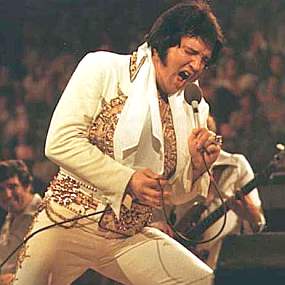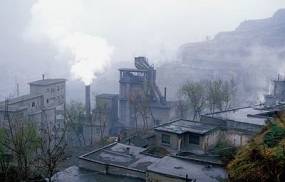Now there is great gain in godliness with contentment, for we brought nothing into the world, and we cannot take anything out of the world. But if we have food and clothing, with these we will be content.
—1 Timothy 6:6-8
At a time of the year when we celebrate Christ coming in the flesh to dwell among us and rescue us from sin and death, why is it that so many people are sad?
Some people recall loved ones that didn’t live to see another Christmas. For them, I can understand how Christmas can feel gray. I went through that feeling in 2001. Didn’t feel all that great, but I moved on.
Some people will be alone again this Christmas. Can’t say that I ever experienced that reality, but not having anyone to share Christmas can be a tough time. I understand that one, too.
When you push aside those two very human and understandable reasons to be sad at Christmastime, not too many other good reasons exist.
I read v. 8 out of that 1st Timothy passage above and it knocks me out. Food and clothes. That’s it. Well, perhaps not all of it. Paul writes in many other places about the cheer that fellow believers gave him whenever he had a chance to fellowship with them, so he definitely saw how loneliness and the loss of dear ones chipped away at his resolve.
When you get to the meat of Paul’s words, though, it’s hard to escape the reality that beyond Jesus, all the Christian truly needs is food and clothing.
Wow.
I sit in my office now and type this on a six-year-old PC. My ten-year-old Mac’s gotten too slow to handle most Web sites anymore, what with the million Javascripts, cookies, Flash animations, AJAX, and whatever loads in your average Web site today.
But I’ve got two computers in my house. Two.
Here in my office, I sit in front of a phone and a Brother duplexing fax/scanner/laserprinter while a satellite dish pours out binary to the heavens. I’ve got a bookshelf full of books like To Kill a Mockingbird, The Complete Grimm Fairy Tales, Pilgrim at Tinker Creek, Winnie the Pooh, The Classic Collection of E.M. Bounds on Prayer, Revival by D. Martyn Lloyd-Jones, and I’m Just Here for the Food by Alton Brown.
I’ve got a couple of brandy snifters I don’t think I’ve ever used sitting in the glasses cabinet. Two desks. Two. Another bookshelf filled with the complete series of The Interpreter’s Bible. Three filing cabinets. Three.
But all I need is Jesus, food, and clothing to be content.
I read a book recently that said that contentment is complete satisfaction with the will of God. Can most of us say we’re content with the will of God for our lives? Don’t we sometimes look around and wonder how that guy over there got all the good stuff and I didn’t? Don’t we entertain fantasies of what we’d do differently in our lives if we had access to a genuine time machine?
I haven’t seen it in years, but the old Charlie Brown Halloween special has a scene where the kids compare the treats they receive at every house they visit,  and poor ol’ Charlie Brown is always forced to admit, “I got a rock.”
and poor ol’ Charlie Brown is always forced to admit, “I got a rock.”
I don’t know about you, but I can’t bring myself to say, “I got a rock,” anymore. That’s a lie. No matter what life brings, none of us has the right to say, “I got a rock.” Jesus didn’t die so that you could have a rock—unless that rock’s what rolled away from the empty tomb. (That rock and what it means…well, that I’ll take.)
So for all those people sad at Christmas because the neighbor got a snow blower while you got a cheap shovel from Walgreens, I say two words: “Get real.”
Because I don’t see in my Bible that I need a snow blower to be content. In fact, Paul doesn’t even me mention a roof over his head as part of his contentment.
Think on that for a couple minutes. This post will wait….
So for all those folks out there with long faces at Christmastime, I offer no greater words of wisdom than to say, “Snap out of it!” Who are we to grouse about this thing or that? When Jesus asked Peter whether he and the rest of the twelve wanted to take off like some fairweather followers had, Peter replied, “Lord, to whom shall we go?” And by “Lord” he wasn’t talking about Lord & Taylor.
Who are we to moan at Christmastime—or any time? Do we have food? Do we have clothes? Most of all, do we have Jesus?
Sounds like contentment to me.

 We’re turning into sweaty-faced lard-buckets hollering about those damned liberals and their abortions, or those red-diaper babies selling America down the commode, yet we can’t pull ourselves away from the “Stuff Yourself till You Explode” brunch bar at the local Big Boy.
We’re turning into sweaty-faced lard-buckets hollering about those damned liberals and their abortions, or those red-diaper babies selling America down the commode, yet we can’t pull ourselves away from the “Stuff Yourself till You Explode” brunch bar at the local Big Boy. Diseased residents, like something out of a post-apocalyptic nightmare, stumbled around in sunless wastelands wreathed in smog.
Diseased residents, like something out of a post-apocalyptic nightmare, stumbled around in sunless wastelands wreathed in smog.